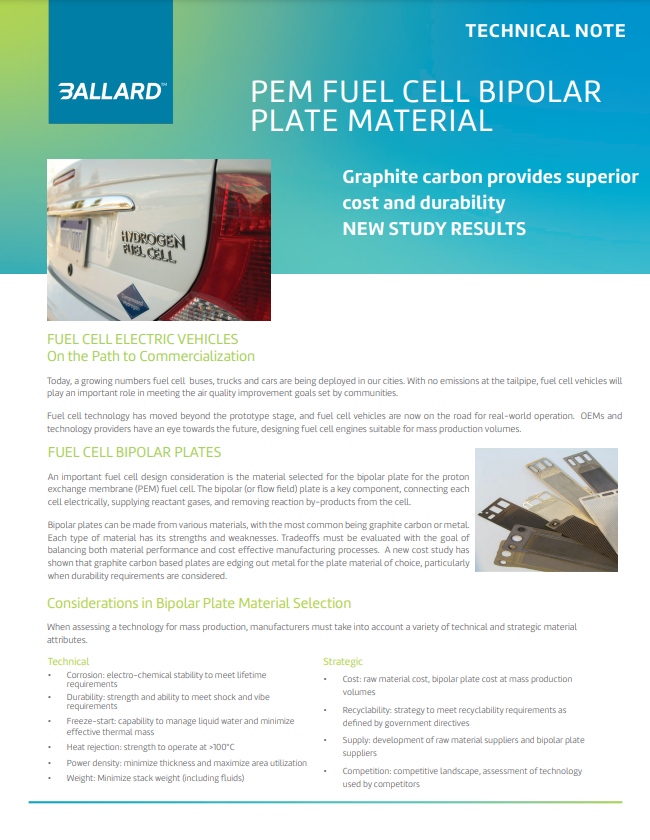

FCgen®-HPS is a high performance, high power density, liquid-cooled fuel cell stack designed to provide propulsion for a range of light-, medium- and heavy-duty power applications.

Ballard’s fuel cell stack products feature a proprietary MEA, supported by over 45 years of development. They offer system integration support, automated manufacturing for cost efficiency, collaborations with Tier 1 customers, purpose-built designs, and proven durability with global deployments.
Proprietary MEA
Over 45 years of product development, Ballard has refined the membrane electrode assembly, a core component of our fuel cell stack products.
System Integration Support
Our Applications Engineering team is available to ensure customer success through the entire system design and integration process.
Volume Manufacturing
Automated and continuous manufacturing processes ensure high quality, low cost production to meet customer demand.
Tier 1 Customers
Our extensive collaborations with Tier 1 automotive manufacturers have driven enhanced product durability and performance while rapidly reducing product costs.
Purpose Built Designs
A choice of air-cooled or liquid-cooled fuel cell stacks ensures purpose-built designs optimized to suit your power application.
Proven Durability
Ballard’s commercial fuel cell stacks are fully validated, with more than 1GW of products deployed with customers around the world.
Ballard delivers an extensive range of fuel cell stacks, expertly crafted to facilitate the smooth transition of commercial vehicles to zero-emission mobility. Leveraging our proven technology and years of industry-leading experience, we’re helping drive the future of clean transportation.

Experience the future of clean energy with Ballard’s innovative fuel cell stacks. Designed for zero-emission solutions across mobility, marine, and stationary power sectors, Ballard is driving the shift towards a sustainable energy future. Our fuel cell technology not only delivers high performance but also supports a cleaner, greener planet. Join us in powering a zero-emission world and making a meaningful impact on the global transition to sustainable energy. Choose Ballard for solutions that lead the way forward.
Zero-emission buses are critical to the future of sustainable public transit and fuel cell buses offer an equal replacement for diesel and CNG buses, with no compromise in operational service.
Products:
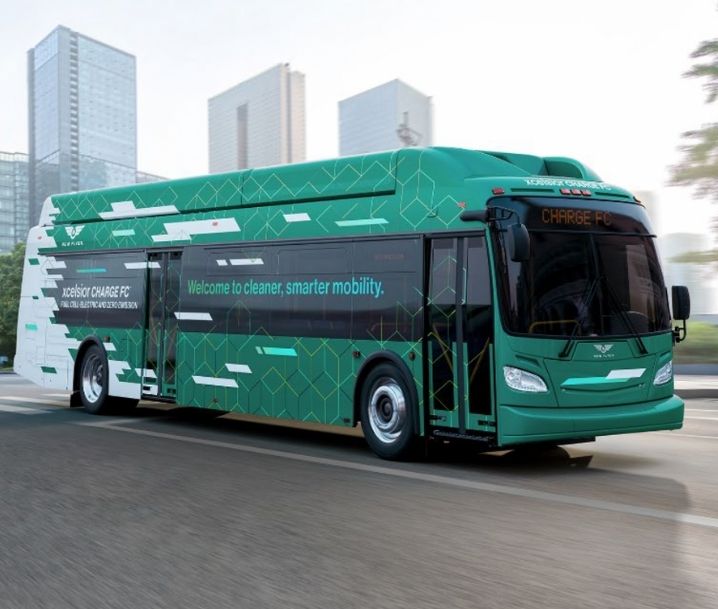
Ballard’s fuel cell stacks are capable of offering more power, payload capability, longer range, and faster refueling than battery electric solutions. Our zero-emission fuel cells enable cleaner transport of people and goods, without compromising on operation and performance.
Products:

Ballard’s fuel cell stacks provide power solutions for a variety of marine vessels
Products:

Ballard’s fuel cell stacks provide power solutions for a variety of stationary power applications.
Products:
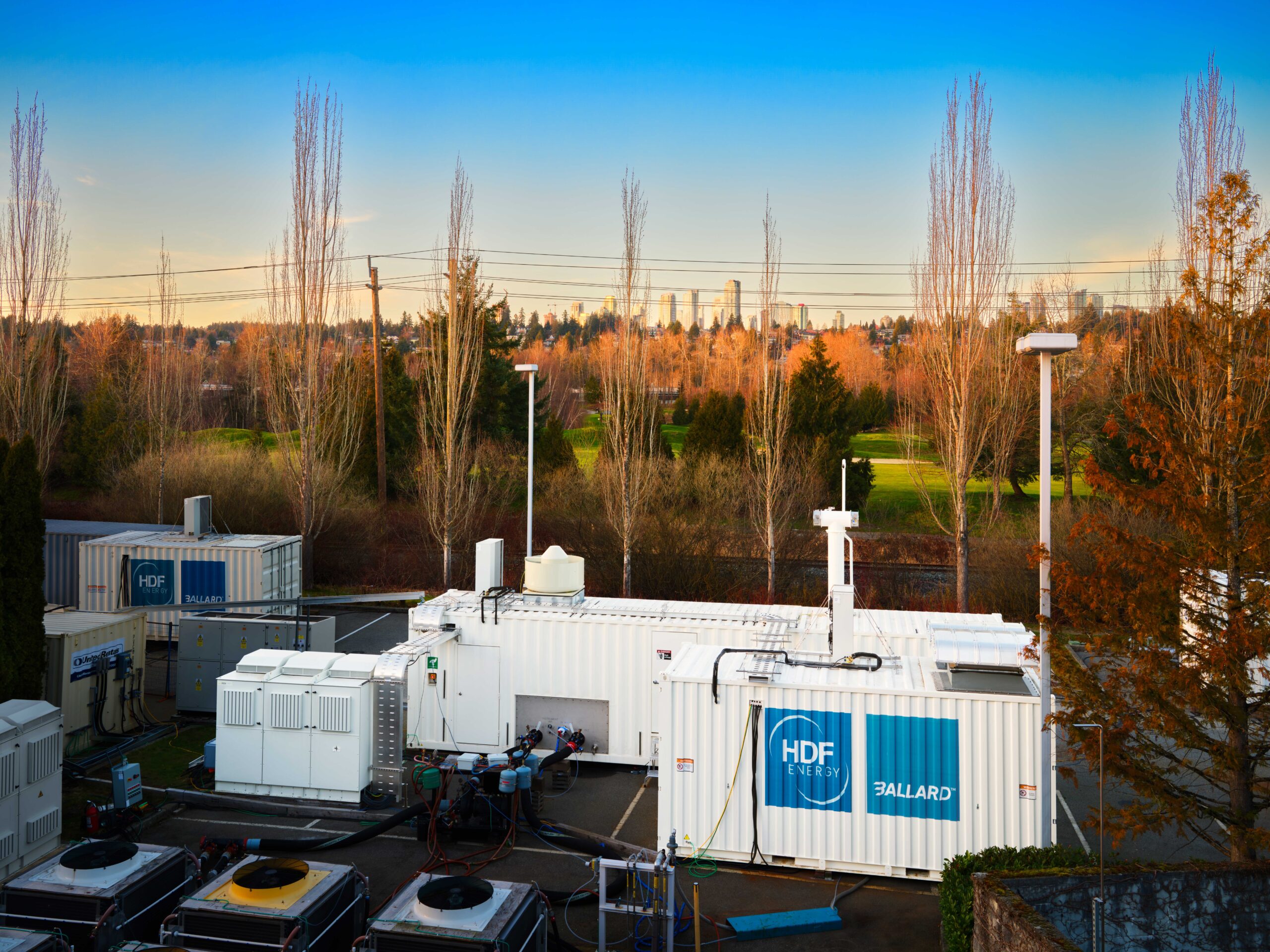
Zero-emission commuter trains are critical to future zero emission public transport and fuel cells offer an equal replacement of diesel and CNG engines, with no compromise on passenger service.
Products:

Ballard fuel cell modules are scalable, versatile, and ideal for decarbonizing heavy equipment and vehicles. With longer operational range, greater payload capacity, and faster refueling than battery solutions, our zero-emission modules operate without compromise on power, performance and efficiency.
Products:
Learn more about Fuel Cell Off Road & Material Handling vehicles
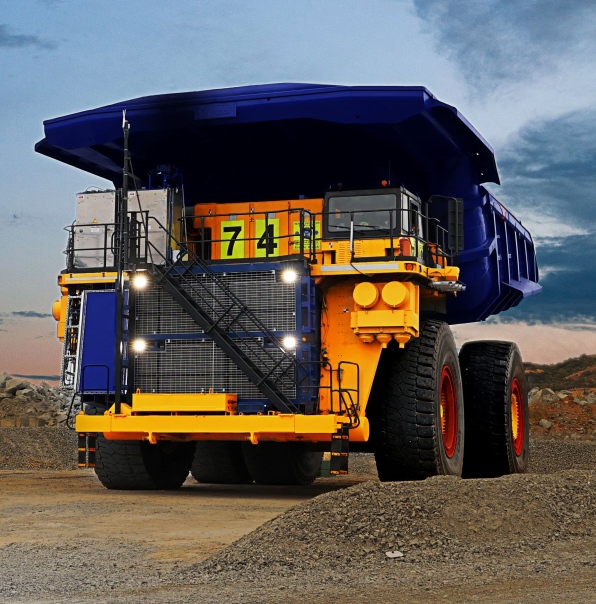
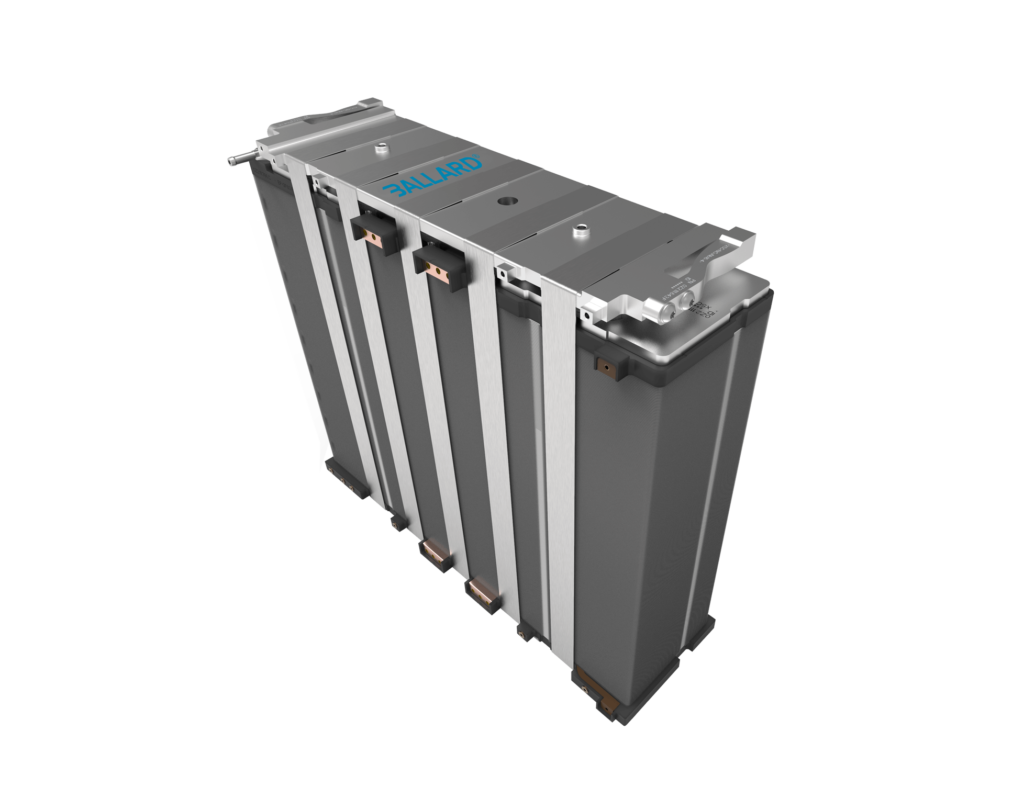
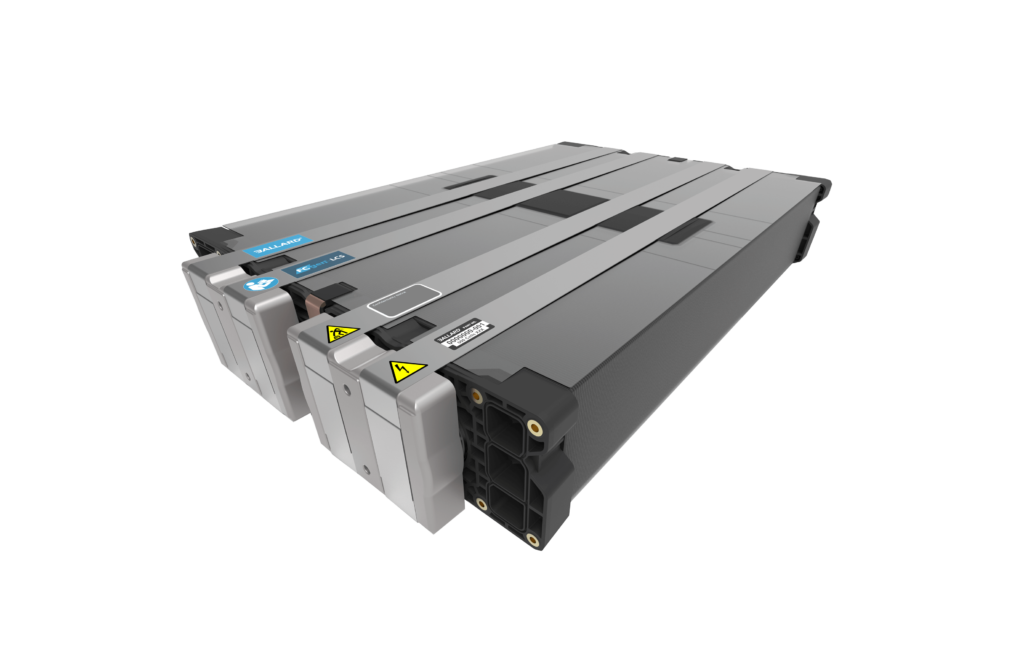
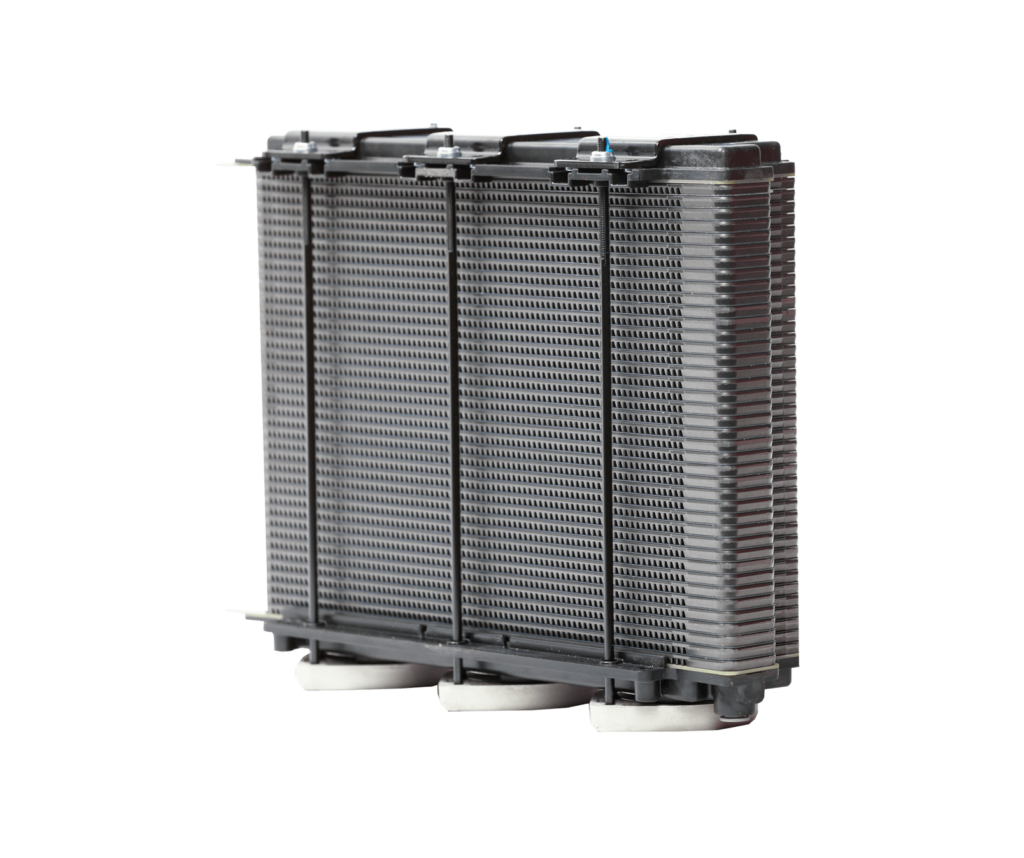
Begin your journey towards sustainable power solution by scheduling a consultation with our knowledgeable fuel cell experts—let's discuss how we can drive your project forward together.
Fuel cells are highly efficient for power generation and can operate on various fuels, including hydrogen, natural gas, ammonia, and methane. At Ballard, we prefer to use low-carbon hydrogen for true zero-emissions solutions.
The lifespan of a fuel cell stack depends on the type of fuel cell, the application, and operational conditions, but generally Ballard’s fuel cell stacks can last more than 25,000 hours before requiring service. Fuel cell systems are designed for low maintenance compared to internal combustion engines. Typically, fuel cell stack maintenance includes regular inspections, air and fuel filter changes, and coolant system checks to ensure efficiency and prevent degradation over time.
Fuel cell stacks are used in various applications, including transportation (cars, buses, trucks, trains, drones, ships), and stationary power generation (backup systems for hospitals, data centers). They provide clean, efficient energy with low emissions, offering advantages like long ranges and fast refueling compared to battery-powered alternatives.